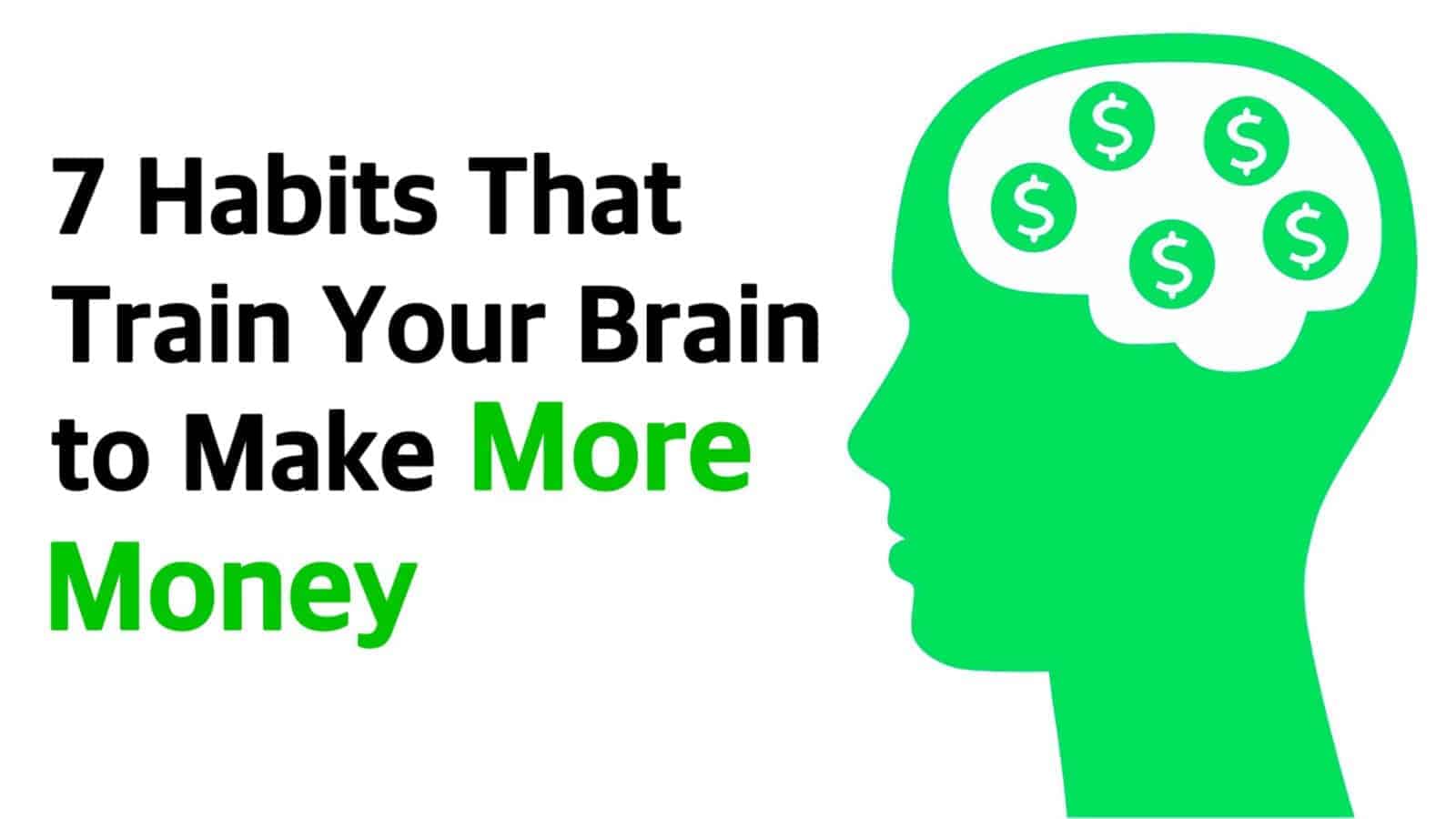“Too many people spend money they haven’t earned, to buy things they don’t want, to impress people that they don’t like.” ~ Will Rogers
Your brain manages your money. How you take care of your brain determines how you take care of your money. If we aren’t familiar with the fundamental financial concepts – and how your brain relates to it – we are selling ourselves short.
This article discusses seven principles of how the brain perceives money. Each principle includes a mind exercise that is designed to get us thinking about the brain/money relationship.
Let’s get started!
7 Habits That Will Increase Your Income
1. The brain needs some gratitude practice!
The brain is wired to seek immediate gratification. When it comes to making money and building wealth, immediate gratification is the enemy.
Appreciating what you have, such as food in the cupboards, a roof over your head, and clothes on your back are especially powerful when you consider that 80 percent of humanity lives on less than $10 a day.
Half of the world lives on less than $2.50.
Practicing gratitude makes us realize we have most of what we truly need and want. As a result, we’re less likely to splurge on the newest thing that catches our eye. As Mr. Benjamin Franklin once said, “A penny saved is a penny earned.”
Exercise #1:
Take five minutes in the morning to write down 2-3 things for which you’re grateful. Tear the sheet out, fold it up, and keep it in your pocket, wallet, or purse. Whenever you feel stressed about money, open it up and read what you wrote.
2. You’re in control
While our brain may be relatively primitive, this chunk of gray matter still takes its cues from you. As such, it is essential to spend some time evaluating your strengths and weaknesses when it comes to wealth generation.
What are your attitudes, behaviors, and fears that could trump your efforts to make more money? Are you an impulse spender? Can you resist a good deal? Do you prioritize saving?
Exercise #2:
For one week, bring along a small, pocket-sized notebook.
Whenever you buy something, write down the name of the item and whether it was a “need” or a “want.”
After the week is up, sit down and go over every item purchased throughout the week. How do you feel? Are you still happy you bought those things? What changes will you make going forward?
3. Money doesn’t inspire your brain
What are your fundamental needs?
Human beings require four things: food, sex, shelter, and water. These are primary motivators.
Money, meanwhile, is a secondary motivator – and becomes more or less powerful depending on how you use it.
Striving too much to acquire a bunch of secondary rewards – the big house, nice car, fancy desk, etc. – can lead to ‘motivation overload,’ which may lead to a cognitive ‘downshifting.’ The result is that we rely more on making ourselves happy by spending more – something that never works.
Exercise #3:
Think of all the big purchases you’ve made over the past year or two. Take 10-15 minutes to recall as much as you can. After you’ve listed everything off, ask yourself the following questions:
– Do these things reflect my goals and values?
– Would I repurchase these things if given a second chance?
– Think about how your responses may influence your purchasing decisions going forward.
4. Money must mean something
As mentioned, money itself isn’t a motivating force for the brain. However, contextualizing motivations – financial security, money management, money values, peace of mind, etc. – helps your brain solidify the abstract connection between money and desires.
Your brain prioritizes that which you repeatedly do and think. As such, personalizing money by deciding its purpose and establishing habits conducive to that purpose can reinforce the brain’s need for intellectual substance.
Exercise #4:
Write down your response to the following questions:
– What is your purpose for wanting to make more money?
– Are your money habits in-line with this purpose?
– What changes can you make to (a) leverage the income you currently earn, and (b) establish a foundation for earning more?
5. Your brain may need a reboot
You hold conscious and subconscious opinions on everything related to money; including how one makes money, how one manages money, how wealthy people “behave,” and how much is “enough,” for example.
Our direct and indirect experiences with money mold our financial perspectives.
Do you think all wealthy people are greedy? How do you react when you see someone “successful” – positive, negative, or neutral? Did your parents teach you how to handle money? What does the word “wealth” mean to you?
All of these things influence your attitudes and, most importantly, behaviors towards money.
Exercise #5:
Pick up a copy of The Millionaire Next Door by Thomas J. Stanley and William D. Danko. Stanley and Danko are both professors who discuss some of the most important (perhaps counterintuitive) habits of millionaires – education, hard-work, discipline, and simple living.
6. Your brain is capable of amazing growth
We’re all human beings, and it can feel as if it’s nearly impossible to reverse lousy money habits, learn about wealth, and so on. But this is just not true.
Neuroscientists have discovered that the brain continues to grow throughout life. This means that it’s never too late to become who we want, achieve what we want, and make better decisions.
While re-training our brain requires discipline, focus, and dedication, we can shape our attitudes, behaviors, and actions in a way that is conducive to achieving financial freedom!
Exercise #6:
Watch the TED talk called “Growing evidence of brain plasticity” by Dr. Michael Merzenich. In his presentation, Dr. Merzenich – a pioneer in the field of neuroplasticity – explains how the brain is wired for learning new skills, e.g., financial skills, at any age.
7. Regarding money, your brain can be a friend or foe
To wrap things up, it’s helpful to understand and remember some basic neuropsychology. You’ll notice as you go through this “For You/Against You” list for the brain that the concepts can apply to pretty much ANY endeavor, including financial management, success, and freedom.
Against you:
– The brain is wired to react to any real or perceived threat.
– Your brain can become lethargic and dull unless challenged.
– The brain will resist any effort to change habits.
For you:
– You can effectively limit the brain’s fear response.
– Your brain can learn new skills at any age.
– Your brain can learn to prioritize reflection over impulsiveness.
Exercise #7:
Memorize the above lists and recite them daily for the next 30 days. What you’re doing here is bit of ‘brain hacking.’
By bringing the brain’s strengths and weaknesses into your consciousness, and then reinforcing them through repetition, you are instructing the mind to work in your favor!















 Community
Community

